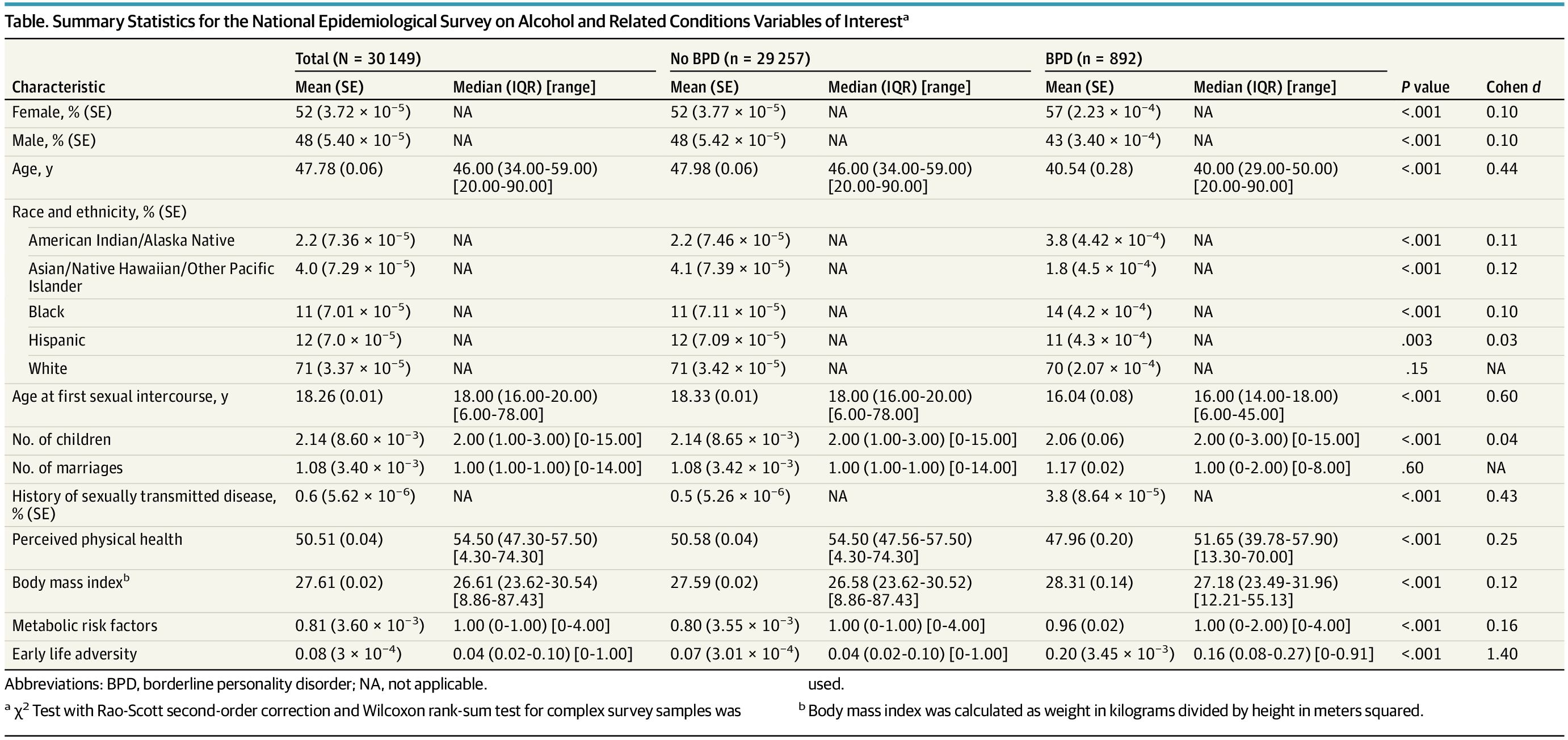- Joined
- May 20, 2010
- Messages
- 5,300
- Reaction score
- 6,919

Associations Between Early Life Adversity, Reproduction-Oriented Life Strategy, and Borderline Personality Disorder
This cross-sectional study examines whether the emergence of borderline personality disorder is associated with the prioritization of immediate reproductive goals over longer-term somatic maintenance goals.
Wanted to see what others thought about this….feel like this is such a weird take on this data and pretty clearly trying to make this data (that we already know about, people with more unstable early development tend to be ya know more unstable on a population statistical level going forward) trying to make it fit a evolutionary theory.
Have to admit I’d never really heard of this even being a theory before in terms of Life History Theory being used to try to explain psychiatric conditions but I’m thinking it seems like quite the stretch.
Last edited:
